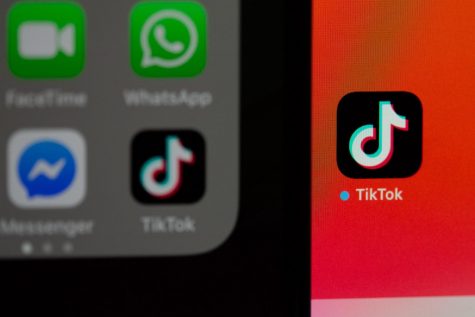Oh TikTok, what will we do with you?
TikTok has become much more than just an app, it has become a way of life. Kids, teens, young adults, and even parents have taken the platform to a whole new level. There is no question that the app brings the world closer together, but could it also be tearing the world apart at the same time?
When one downloads the app for the first time, scrolling through the feed is somewhat surprising. A lot of the content is full of vulgar language, inappropriate content, and even violence. While every streaming site has a good and bad side, Tiktok doesn’t seem to hide it. These types of videos can be harmful to young children on the platform, and it can even influence society offline. The whole moral code of popular culture is fleeting, and the world’s contemporary ideologies are only being pushed through social media platforms like TikTok.
TikTok lowers the morals of members of society. For example, in person, people tend to act more modestly in their interactions with others. Having a platform that inspires poor behavior only inspires the rest of the world to act the same way in real life. People creating content are more concerned about going viral than they are about putting out uplifting content; often going viral means doing something too crazy extents. Naturally, if one watches a video every day with poor language, violence, body negativity, and more, it is going to have a very negative effect on them.
The app also can also be extremely addictive. During a season of online learning, the last thing teenagers need is to spend another hour or more on TikTok. There is always new content, funny videos, or even thought-provoking videos that pull the viewer in. Algorithms are made to cater to the viewer, which makes it more enjoyable for them. More specifically, when a user watches videos on TikTok, it gives them a boost of dopamine which gives them an easy way to feel somewhat happy. The issue with this is that it teaches users of the social media app that they are happy when they watch Tiktok. In reality, they are just receiving little boosts of dopamine to make one feel that way. Instead, viewers could be using the time they waste on the app to do things that they actually enjoy.

The most concerning issue about TikTok is its toxic influence. While there is a presence of body positivity, there are still a lot of negative comparisons that one can feel when they see others doing fun things, wearing expensive clothes, or have a different body type. This can leave active users of the app feeling lonely or inadequate in society. Other forms of toxic behavior are censorship of minorities, virtual attacks on beliefs, and even the spread of inappropriate content. A lot of these things are not hard to find, which is the most concerning part.
That being said, there are still multiple sides to the story. Tiktok brings creators together. It brings relatability, humor, new perspective, body positivity, and it puts light on societal issues. The platform is often a place where everyone can have a voice.
In a survey taken from 151 Arvada students and families, 57 percent said that Tiktok had mostly positive effects on society, with the other 43% saying it was mostly negative.
Junior Chloe Corning says that she enjoys TikTok, “I think of it as a way for our generation to connect and have our own space, which I find really cool!”
Another Junior at A-West, Chloe Dugan, comments, “I think it can bring people a community and platform otherwise unavailable.” She continues, “However, that being said, I’ve witnessed more bullying and bad people on TikTok than anywhere else”.
That’s where the issue comes down too: While TikTok may have great benefits, should the people on TikTok really be trusted to only bring positive content? The price of being influenced by the toxic behavior on TikTok may not be worth it in the long run. For now, TikTok doesn’t necessarily need to be canceled, but it needs to be restricted and less addictive so that the positive impacts can shine through.

Alex Larson is a senior at A-West this year. She enjoys running, singing, writing and playing piano. Her favorite type of story to write is an op-ed, because...



